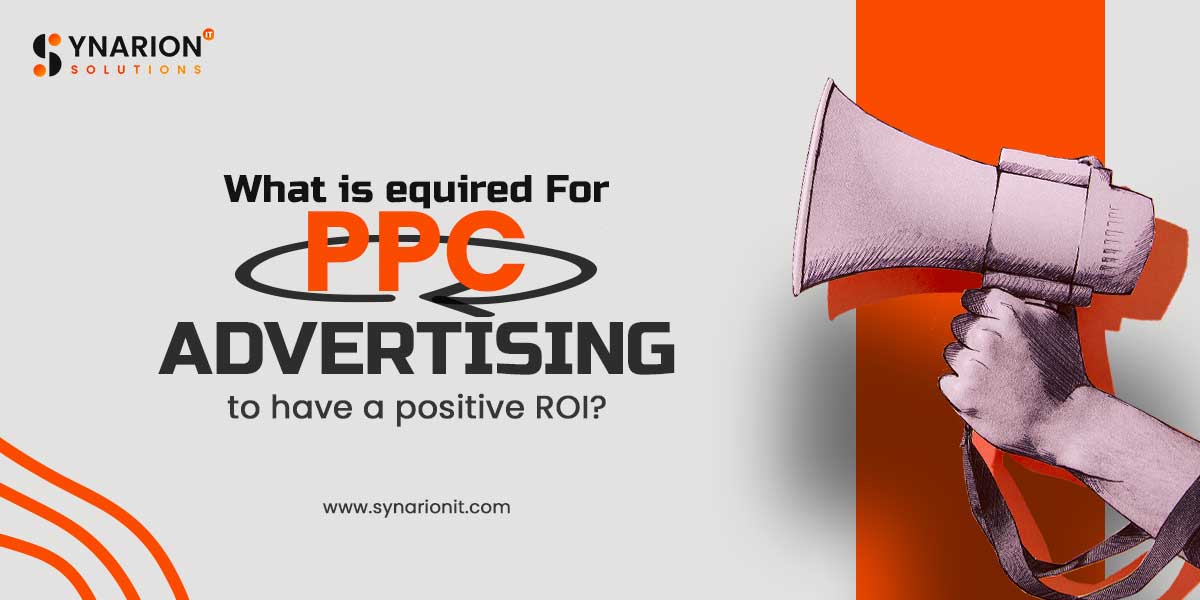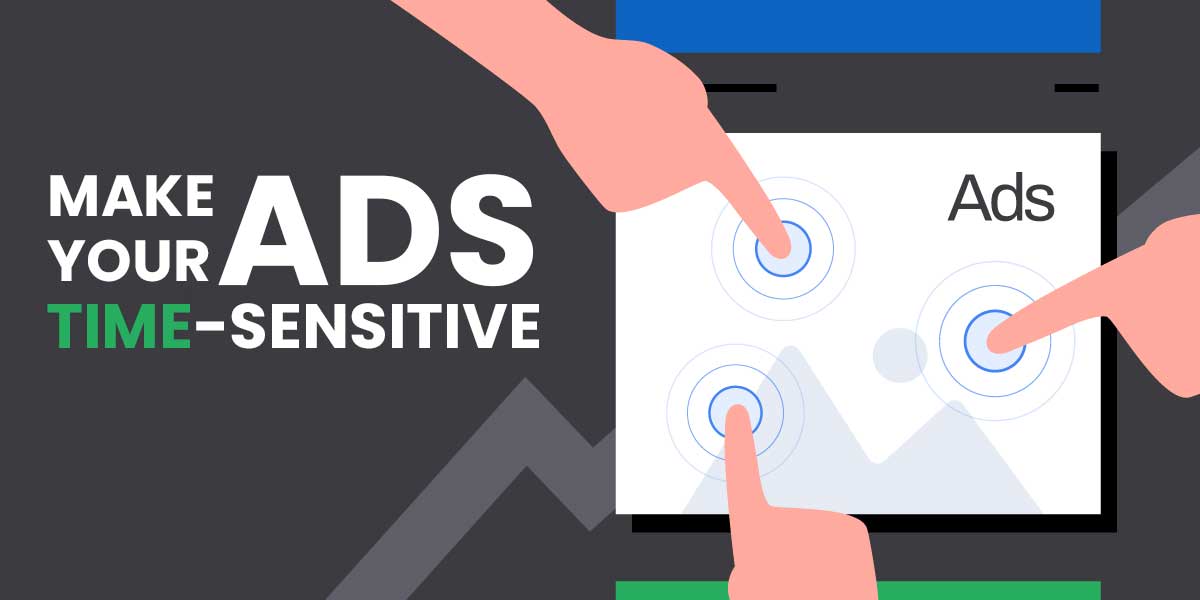
Pay-per-click (PPC) advertising is based on a deceptively straightforward idea. You must first register for the platform's services, choose your perfect keywords based on a few key criteria of your target market, and then pay for each lead produced by the advertisements you finally run.
There are a few essential components you require to successfully manage a PPC campaign. We will cover every facet of pay-per-click advertising in this blog post, as well as how to obtain a good ROI.
Turn a Positive ROI in PPC Advertising
That's a very fantastic setup whether you're managing a big, well-established business or a young upstart. You have complete control over who sees your advertisement since you only pay for users who navigate to the landing page you've selected.
Sadly, not every PPC campaign achieves a profitable return on investment (ROI). Thousands of brand-new business owners learn it the hard way each year.
What precisely must happen in PPC advertising in order to get a good ROI, and how can you get there even if you lack considerable experience?
The Importance of Return on Investment (ROI)
ROI should be viewed as the key performance indicator for every marketing and advertising campaign. It accurately determines if your advertising campaign is profitable.
To break even on the $5,000 spent on PPC advertising, $5,000 in additional income is required. You will experience a loss if your revenue is merely $3,000 or less. On the other hand, if you make $10,000, you should practically double your initial investment.
ROI is also beneficial since it eliminates information that might skew your assumptions and biases in perception. For instance, you may mistakenly think that your PPC ad approach was a huge success if it led hundreds of thousands of visitors to your landing page.
However, even with a large number of visitors, you might not always be making enough money to cover the costs of running your campaign.
Revenue and Expenses
Depending on how much money you make and how much money you spend. You are in the positive ROI zone if your income exceeds your expenses.
Because of this, most individuals who are concerned with the return on investment of their marketing initiatives choose a two-pronged strategy, concentrating on both cost- and revenue-saving measures.
The Big Picture
How can you do this?
As part of your "big picture" strategy for boosting ROI in PPC advertising, you may concentrate on the following tactics:
- Audience targeting: Any marketing and advertising plan must include audience targeting, and PPC advertisements are no exception. Your ability to target them more effectively, produce more traffic, and make that traffic more relevant will all increase as you become more familiar with your audience.
- Smart ad buying: The effectiveness of your advertising plan will depend on how well your ads are written, where they are placed, who is being targeted, and what they are bid on. If you don't have the basics right, you can wind up spending a lot of money on an advertisement that doesn't work.
- Adaptation: No PPC advertising campaign is successful after the first round. You must continue to be flexible and adaptive if you want to get the greatest outcomes and constantly profit from a strong ROI.
Let's now explore how these overarching ideas may affect your tactical groundwork.
A Proven Plan to Increase Your PPC's Return on Investment
A sound plan is the basis for everything. You should have a paper that outlines your goals and your plan of action before you start purchasing your first round of PPC advertising services.
Consider the following, at the very least:
- Appeal: Who is your target market,t, and how will you entice them? What are the elements that will pique people's attention in your advertisement and what will persuade them to buy? You shouldn't be paying for ad space if you don't know what your appeal will be.
- Differentiation: Additionally, you must comprehend how your brand is unique. It's likely that many of your rivals are already actively using PPC advertising and other search visibility techniques. What qualities will set your company apart if potential clients perceive it to be on the same level as your rivals? What will persuade people to pick you over them?
- A long-term vision: In what ways do you anticipate this campaign evolving in the future? Is this only intended to help your firm gain some traction in the beginning? Or are you going to use your PPC marketing strategy to attempt to monopolize the competitive environment indefinitely?
Keyword Targeting (and Negative Keyword Targeting)
Which keyword to target and which negative keywords to attempt to avoid is one of the most important strategic choices you'll need to make for your PPC ad campaign. You will use these tools to shape the targeting of your PPC campaign.
You'll have a far better chance of reaching your desired target audience if your advertisements appear for the proper keywords and stay away from appearing for the wrong keywords. As a result, you'll produce a lot more traffic,, and the traffic you do generate will be far more inclined to purchase your goods.
Sadly, when it comes to keywords, there are no right or incorrect solutions. You'll need to conduct thorough research and consider a wide variety of various keywords connected to your business and sector.
It could also take several months of trial and error before you find a successful formula.
Custom Landing Pages
You should also consider your PPC landing pages. These are the pages that your visitors will see right away after clicking your advertisement. Your landing page's effectiveness, relevancy to your target demographic, and calls to action (CTAs) all have a big impact on how profitable your PPC ad campaign is.
Your audience will be pleased and your conversion rate will be higher if your landing pages are really well done, which will eventually increase the value of each ad click.
In contrast, even the most effective PPC traffic stream might be rendered useless if your landing page is unresponsive to those visitors.
Ad Quality
PPC advertisers also need to consider the quality of their ads. Although you only pay for those who click on your advertisement, the effectiveness of that advertisement can still have a significant impact on your campaign.
To begin with, adding quality has a significant influence on audience targeting; by using better phrasing, you can make your advertisement more pertinent to the customers who are most likely to make a purchase from you.
Conversion rate and ad quality are connected, and Google and other platforms will give you more preference if your advertisements are good.
Smart Bidding
To succeed, you'll also need a clever bidding plan. A big stream of visitors might result from overspending on high-profile advertisements, but you won't make enough money to recover those early costs.
However, if you cut corners too much, you can acquire low-quality ad slots that don't even reach your target market.
Once more, this is something that you'll have to learn through time. Consider the typical cost of a conversion, thoroughly research your rivals, and attempt to determine the best offer for an advertisement.
Ongoing Measurement and Refinement
Keep in mind that PPC advertising is a dynamic industry. Threats and opportunities will exist for you in the future due to new upgrades, features, platforms, and growing rivals, to name a few.
You're going to need to measure your outcomes often and be ready to modify your approach if you want to adapt to these new changes and maintain your campaign valuable.
Make your ads time-sensitive

You may alter nearly every aspect of your advertising when using Google Ads to target customers as precisely as you can. One immensely significant component of this is time.
The premise is that running a PPC ad while your target audience isn't online is useless. Every business has peak times during the day, and you may get better results by modifying your advertising to just run during certain times.
Additionally, you may alter the timing of your advertisements whenever you choose, allowing you to adapt to shifting consumer demand throughout different times of the year or during special occasions.
If you're a B2B supplier, for instance, it wouldn't make much sense to invest all of your funds on an advertising campaign that runs around winter holidays like Christmas and Hanukkah since your clients are likely to be out from work during those times. The same is true at the beginning of summer when many people take weeklong vacations, which may cause traffic to slow down.
In order to take advantage of the times when your demographic shops, you just need to pay attention to when your industry is busiest. When you do so, you'll increase the number of website visitors you can turn into paying clients.
Track the stats on your ads and adapt
Google Ads does a superb job of keeping track of data that might guide your advertising choices. To help you modify your PPC campaigns, you have access to a wide range of distinct analytics.
Increasing your quality score is one of the most crucial PPC metrics since it may result in cost savings.
- Click-through rate (CTR): This represents the proportion of viewers that click on your advertisement.
- Cost per conversion (CPC): This is the typical sum you spend on advertising to receive one conversion.
- Conversion rate: This is the proportion of people who click on your adverts and end up buying something.
These indicators all show how well your PPC campaigns are working. You must make a change if your click-through or conversion rates are below average. Similarly to this, if your CPC is high, you must also make a modification.
With updated ad copy and ad extensions that make you stand out and entice visitors to click, you may raise a poor CTR. In order to persuade consumers to convert, you may incorporate CPC by improving your landing pages (which we'll cover next). In the same way, you may raise your total conversion rate.
You can be certain that your PPC campaign will have a good ROI if you keep all of this in mind.
Conclusion
PPC advertising is not a foolproof tactic. It's not guaranteed to increase your ROI, and not every organization should choose for it. However, even novice business owners may benefit greatly from this tactic if implemented with ROI in mind and eventually refined to perfection. Just be ready to put in some effort to get there.
Comments
Post a Comment